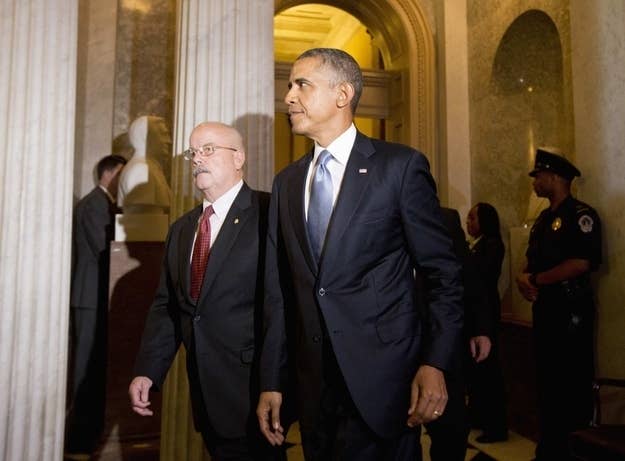
WASHINGTON — For the first time in weeks, President Barack Obama and Congress are seemingly on the same page.
After separate meetings with Republican and Democratic senators on Tuesday, the president made the case for delaying a vote on military action in Syria while the U.S. explores a diplomatic solution offered by the Russians that would require Syria to turn over its chemical weapons to the international community.
Tennessee Sen. Bob Corker, the ranking member on the Foreign Relations committee and a key author of the rewritten authorization of force that passed out of that committee, said he was willing to try to come to a solution through diplomatic channels.
"I don't think we need to rush, it's time to see what's real," he said of the Russian proposal. "For a short period of time, our best course of action is to pause and understand whether this is credible or not, but the authorization of military force needs to remain on the table."
Majority Leader Harry Reid reiterated that the vote on authorization of force was postponed indefinitely as the administration would seek to work with the United Nations.
"I'm not guaranteeing anything. I do know this," Reid said. "Our schedule's being driven by developments that are taking place not by some artificial timeline that we have here. As I said last night, I will tell everybody again, it's important we do this well, not quickly."
But Reid said the president would not take a strike off of the table, as the negotiations continue.
"It's important to understand that the only reason Russia is seeking an alternative to military action is that the president of the United States has made it very clear that we will act if we must," he said. "And that's a message he gave us."
Sen. Chuck Schumer said "there is hope but not yet trust" in what the Russians are doing.
"There's an overwhelming view that if international law and the family of nations could strip Syria of the chemical weapons and there is a large view that we should let that process play out for a little while," Schumer said.
Those that were opposed to striking Syria were ready to delay a vote to look at the diplomatic route the president was asking for. Earlier in the day, Sen. Rand Paul, one of the loudest voices in opposition to striking Syria called the Russia's potential involvement in negotiations a "hopeful development."
"To me this is the type of strategy that makes a whole lot more sense," said conservative Sen. Ron Johnson, who voted against the strike in committee.
The meetings with senators were described as both frank and serious. Sen. Mark Kirk, an Illinois Republican, said GOP members were "very taken with the president" and "there was no political theater."
"I thought some of the more conservative guys would have taken on the president… but the president has asked for Congress to have a role and they were very respectful of that," he said, specifically referencing Paul and Utah Sen. Mike Lee.
Sen. Orrin Hatch said that while the administration was committed to trying to find a diplomatic solution, the president was wary of promises made by the Russians.
"They feel like they have to follow this through," said Hatch. "But I got the idea that he doesn't trust the Russians."
